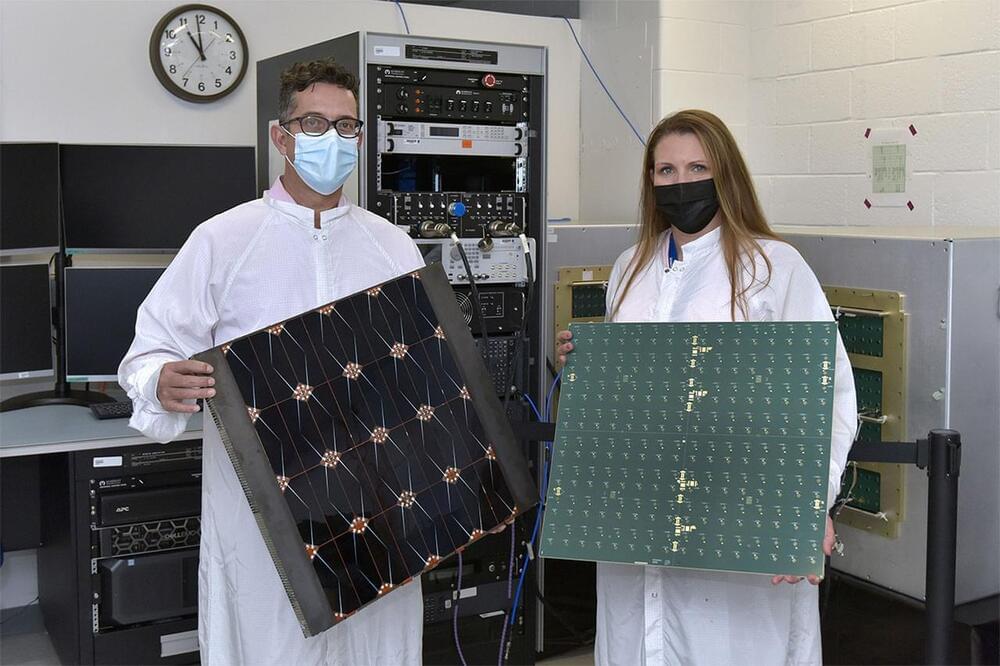The goal is to ‘bring cryptocurrency to the mainstream’ using the well-known consumer brand.


Micro-electromechanical systems or MEMS are tiny integrated devices that combine mechanical and electrical components. Traditional manufacturing techniques such as milling, turning, and molding become impractical at small scales so MEMS devices are fabricated using the same batch processing techniques used to fabricate integrated circuits. These devices can range in size from a few microns to several millimeters.
Because MEMS devices are a hybrid of mechanical and electronic mechanisms, they’re generally fabricated using a combination of traditional integrated circuit technologies and more sophisticated methods that manipulate both silicon and other substrates in a manner that exploit their mechanical properties.
In bulk micromachining, the substrate is removed in a manner similar to traditional integrated circuit techniques.
Surface micromachining, by comparison, is a predominantly additive in nature and is used to create more complex MEMS-based machinery. Material is deposited on the surface of the substrate in layers of thin films.
High-aspect-ratio micromachining differs dramatically from the other two techniques in that it’s reminiscent of traditional casting.
The accelerometers used in automotive airbag sensors were one of the first commercial devices using MEMS technology. In widespread use today, they measure the rapid deceleration of a vehicle upon hitting an object by sensing a change in voltage. Based on the rate of this voltage change, the on-die circuity subsequently sends a signal to trigger the airbag’s explosive charge.

Scientists have discovered new cradle of life with several different species hidden underneath the ice shelf in Antarctica.
When you think of Antarctica, the first thing that comes to mind is most likely that it’s a frozen wasteland. Sure, there is some life in the Antarctic world. But for the most part, the land is mostly made up of a below-freezing environment. Now, though, scientists have uncovered new life underneath the ice shelf.
Don’t Miss: Amazon’s epic holiday deals are here and you won’t believe how good they are!
According to a new study, scientists have discovered more marine life than previously expected under the Antarctic ice shelf. The study was published this past week in the journal Current Biology.

PARIS, Dec. 23, 2021 – LightOn announces the integration of one of its photonic co-processors in the Jean Zay supercomputer, one of the Top500 most powerful computers in the world. Under a pilot program with GENCI and IDRIS, the insertion of a cutting-edge analog photonic accelerator into High Performance Computers (HPC) represents a technological breakthrough and a world-premiere. The LightOn photonic co-processor will be available to selected users of the Jean Zay research community over the next few months.
LightOn’s Optical Processing Unit (OPU) uses photonics to speed up randomized algorithms at a very large scale while working in tandem with standard silicon CPU and NVIDIA latest A100 GPU technology. The technology aims to reduce the overall computing time and power consumption in an area that is deemed “essential to the future of computational science and AI for Science” according to a 2021 U.S. Department of Energy report on “Randomized Algorithms for Scientific Computing.”
INRIA (France’s Institute for Research in Computer Science and Automation) researcher Dr. Antoine Liutkus provided additional context to the integration of LightOn’s coprocessor in the Jean Zay supercomputer: “Our research is focused today on the question of large-scale learning. Integrating an OPU in one of the most powerful nodes of Jean Zay will give us the keys to carry out this research, and will allow us to go beyond a simple ” proof of concept.”

AMD to offer five Ryzen Threadripper Pro 5000WX CPUs for workstations.
Dual-processor workstations are the stomping grounds of companies like Dell, HP, and Lenovo. They tend to cost as much as a car and are aimed at the most performance-demanding professionals with very deep pockets. It is hard to expect motherboard makers to offer dual-socket sWRX8 platforms at this time since 128-core/256-thread machines are complete overkill even for the workstation segment (which is why this capability might be canned if AMD feels that it is easier to offer Epyc platforms for the same market segment instead). Meanwhile, the report also says that Asus and Gigabyte intend to release all-new single-socket motherboards for the upcoming Ryzen Threadripper Pro 5000WX CPUs.
AMD’s Ryzen Threadripper Pro retains eight memory channels to provide loads of bandwidth and support for plenty of memory for professional applications. The CPUs will continue to use the sWRX8 socket, though we do not know whether the new products will be drop-in compatible with the existing sWRX8 platform (probably they will, albeit with a BIOS update).
Since the Ryzen Threadripper Pro processors are designed for professional workstations, not gamers (so you shouldn’t expect to see them in our list of the best CPUs for gaming), it shouldn’t come as a surprise that all the CPUs have a similar rather conservative 4.55 GHz boost clock at a maximum TDP of 280W. The chips will also come with the B2 stepping.
Agility Robotics’ Cassie just became the first bipedal robot to complete an outdoor 5K run, completing the jaunt on a single charge.
Agility Robotics’ Cassie just became the first bipedal robot to complete an outdoor 5K run — and it did so untethered and on a single charge.
The challenge: To create robots that can seamlessly integrate into our world, it makes sense to design those robots to walk like we do. That should make it easier for them to navigate our homes and workplaces.
But bipedal robots are inherently less balanced than bots with three or more legs, so creating one that can stably walk, let alone run or climb stairs, has been a major challenge — but AI is helping researchers solve it.

Korea Zinc buys wind and solar developer Epuron, delivering a wind and solar portfolio of up to 9GW for its green metals and hydrogen ambitions.
Korean Zinc, the world’s biggest zinc, lead and silver producer, has bought Australian-based renewable energy developer Epuron as part of its move towards 100 per cent renewables, green metals and green hydrogen.
The purchase is a significant move, and underlines the determination of some of the world’s biggest metals companies to switch to green products, in moves that will surely turbo-charge the development of wind and solar projects in Australia and across the globe.

The Air Force Research Laboratory’s (AFRL)and Northrop Grumman’s Space Solar Power Incremental Demonstrations and Research (SSPIDR) Project announced that they are one step closer to collecting solar energy in space and transmitting it to Earth using radio frequency (RF). The team has successfully conducted the first end-to-end demonstration of key hardware for the Arachne flight experiment.
A ground demonstration of novel components for the “sandwich tile” was used to successfully convert solar energy to radiofrequency (RF) – a fundamental step required to pave the way for a large-scale solar power collection system in space. For this to work, it is necessary to use receiving antennas on Earth to convert RF energy into usable power.
Space solar power is a key focus of AFRL, which awarded Northrop Grumman a $100 million contract in 2018 for the development of a payload to demonstrate the key components of a prototype space solar power system. The sandwich tile is currently under development as an essential payload component for Arachne and as a building block for a large-scale operational system.

In a bit of good news, the spot price for solar grade polysilicon is dropping quite rapidly. If the trend holds, the cost of solar panels in Australia should follow suit soon-ish.
Polysilicon is used in the manufacture of conventional photovoltaic cells used in solar panels. The sought-after stuff was as cheap as chips in July last year, when it was below USD $7/kg. But a series of events including impacts from the pandemic and a couple of factory fires saw it skyrocket.
Polysilicon spot prices were as high as US$36.64/kg at the beginning of this month. But here’s what’s happened in the last few weeks as reported by Bernreuter Research.
KEAR (Knowledgeable External Attention for commonsense Reasoning) —along with recent milestones in computer vision and neural text-to-speech —is part of a larger Azure AI mission to provide relevant, meaningful AI solutions and services that work better for people because they better capture how people learn and work—with improved vision, knowledge understanding, and speech capabilities. At the center of these efforts is XYZ-code, a joint representation of three cognitive attributes: monolingual text (X), audio or visual sensory signals (Y), and multilingual (Z). For more information about these efforts, read the XYZ-code blog post.
Last month, our Azure Cognitive Services team, comprising researchers and engineers with expertise in AI, achieved a groundbreaking milestone by advancing commonsense language understanding. When given a question that requires drawing on prior knowledge and five answer choices, our latest model— KEAR, Knowledgeable External Attention for commonsense Reasoning —performs better than people answering the same question, calculated as the majority vote among five individuals. KEAR reaches an accuracy of 89.4 percent on the CommonsenseQA leaderboard compared with 88.9 percent human accuracy. While the CommonsenseQA benchmark is in English, we follow a similar technique for multilingual commonsense reasoning and topped the X-CSR leaderboard.
Although recent large deep learning models trained with big data have made significant breakthroughs in natural language understanding, they still struggle with commonsense knowledge about the world, information that we, as people, have gathered in our day-to-day lives over time. Commonsense knowledge is often absent from task input but is crucial for language understanding. For example, take the question “What is a treat that your dog will enjoy?” To select an answer from the choices salad, petted, affection, bone, and lots of attention, we need to know that dogs generally enjoy food such as bones for a treat. Thus, the best answer would be “bone.” Without this external knowledge, even large-scale models may generate incorrect answers. For example, the DeBERTa language model selects “lots of attention,” which is not as good an answer as “bone.”